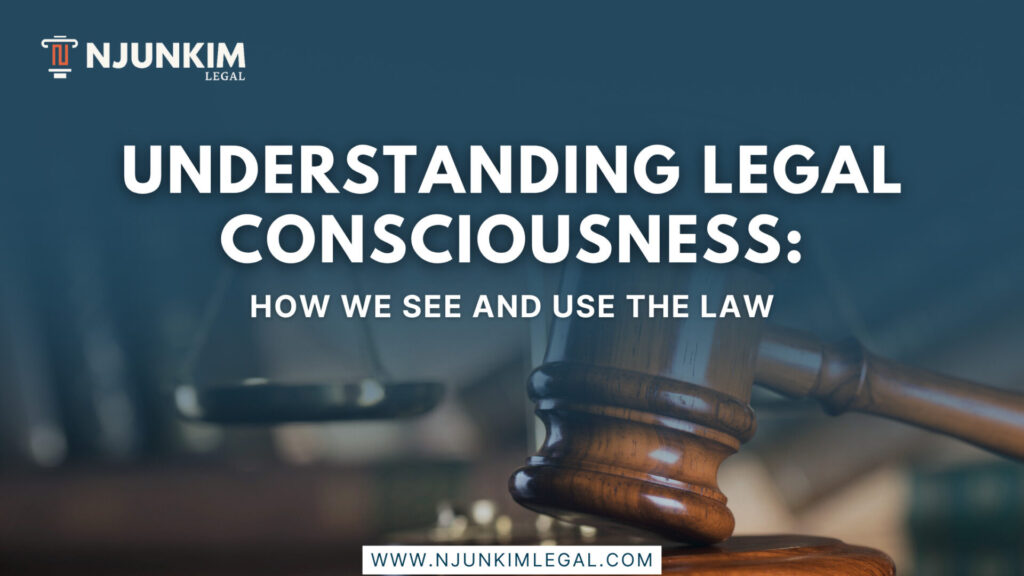The law is not only about lawyers, judges or courtrooms. It is also in the way people think, experience, and interact with the law in everyday life, whether it’s signing contracts, paying for a service, or even paying rent.
In this blog post, we’ll explore how people view the law, the different perspectives and how a balanced perspective can build legal consciousness.
What is Legal Consciousness?
Legal consciousness refers to the way people understand and engage with the law in their daily lives. It is not just about what the law says, it’s about how people view and use it.
There are three ways people usually relate to law:
- The Law as above everyone.
- The Law as a Tool
- The Law as Unfair
1. Before the Law: Seeing law as sacred
Under this perception, people view the law as above everyone. They believe that the law and all its aspects should be respected and obeyed.
Example: A first-time visitor to a Nigerian court rises immediately when the judge enters, not because they understand procedure, but because the law is “above us.”
Implication: This mindset encourages compliance but may prevent people from questioning unjust systems.
2. With the Law : Using law as a tool
People see law as a game, something to use when it works in their favour.
Example: A business owner who registers their company and enforces contracts only when it benefits them, but otherwise ignores certain regulations.
Implication: Law becomes a resource to advance personal or corporate interests.
3. Against the Law : Law as Oppressive
Here, people see law as in favour of the powerful, not ordinary citizens, they try to avoid the law.
Example: market traders pay small bribes to evade levies because they believe formal regulations are designed only to exploit them.
Implication: Resistance reflects distrust in legal institutions and exposes structural inequalities.
The Right Way to View the Law : As a Shared Responsibility
Rather than seeing the law as just sacred, a tool or oppressive , the healthier perspective is to see it as something we all share together. This means respecting the law but also asking if it is truly fair. It means not just using the law for personal gain, but also using it to protect others and support the community. And when the law is unfair, the answer is not to ignore it or break it, but to speak up, push for change, and support improvements..
Why Legal Consciousness Matters
Your view of the law shapes how you:
- Protect your rights : whether you ask for a receipt, read a contract, or challenge unfair treatment.
- Engage with authority: whether you report a wrong or avoid officials out of fear.
- Push for fairness: whether you accept inequality or join others in demanding reform.
How You Can Become More Legally Conscious (Actionable Steps)
1. Know Your Rights
Know your rights under the Constitution, consumer protection laws, and employment laws.
2. Ask Questions
Don’t just “respect the law” blindly ask why a rule applies and how it protects you. Before signing a contract, ask for clarification in clauses you don’t understand.
3. Document Everything
Keep receipts, written agreements, and messages; they become your legal shield. Always insist on written agreements and receipts.
4. Engage, Don’t Avoid
Don’t be afraid to report unfair treatment. Use the available methods and channels to protect your rights.
Conclusion
Legal consciousness is not just theoretical, it’s about how you see and use the law everyday.
By understanding your rights, asking questions, keeping records and engaging with the legal systems you become more legally conscious and empowered.It also means not only educating yourself but knowing when to reach out to a lawyer for clarity whenever things are unclear.

